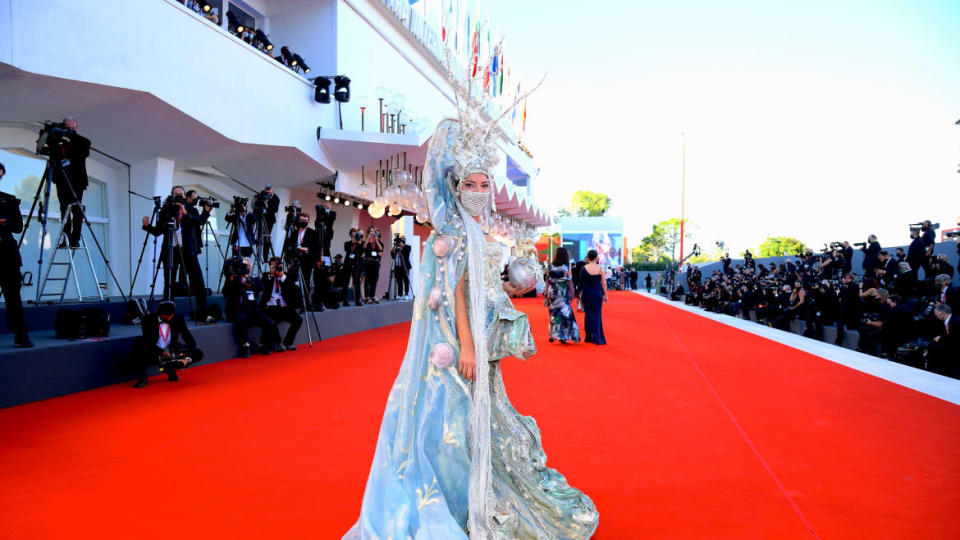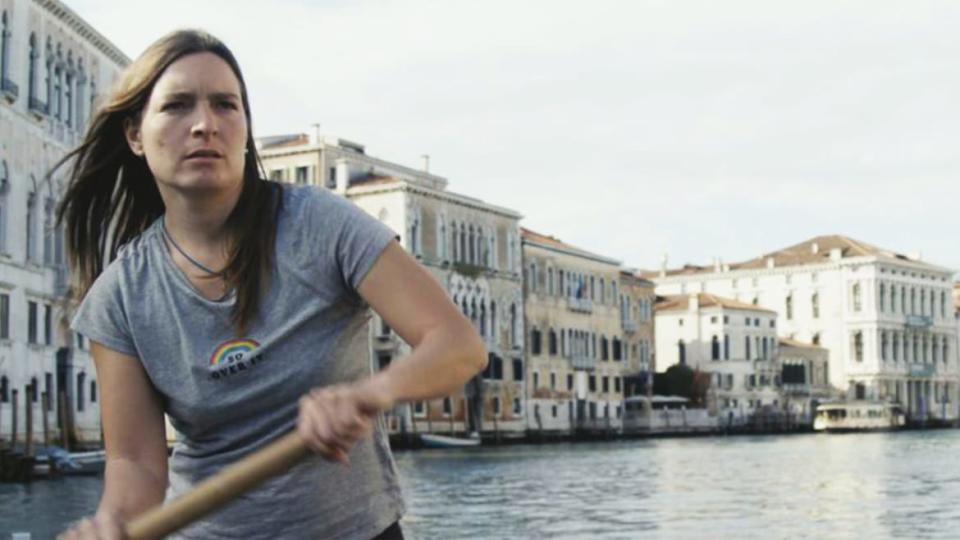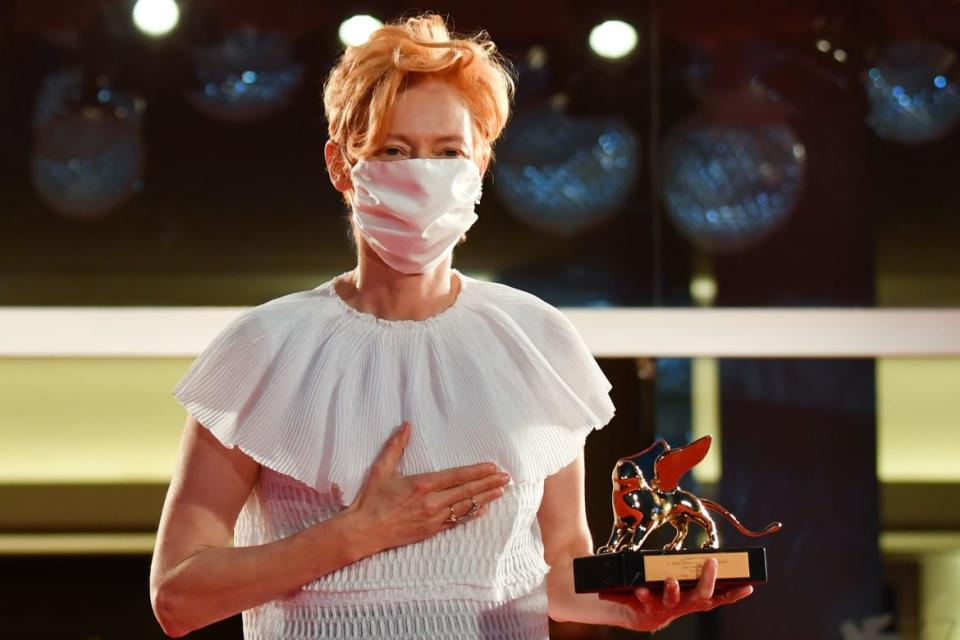The Venice Film Festival’s New Pandemic Look: Thermal Scanners and Designer Masks

VENICE—There is a scene in the film Venetian Molecules—a haunting documentary shot in locked-down Venice during the worst of the COVID-19 pandemic—when the screams of seagulls echo through the empty canals like cries for help. The city at that moment was curled up and dying, and the film was chosen for a pre-opening ceremony to kick off the Venice Film Festival, the first such in-person event in times of COVID-19, to pay homage to how far this magical city has come in the last six months.
Director Andrea Segre narrates the entire film, explaining how he had embarked on a project to document tourism and high water in the city connected to his father, a Jewish Venetian whose own family history is filled with dark secrets Segre had hoped to uncover. He started the project on February 25, hoping to document Carnival parties in full swing, only to get caught up in the lockdown as the Veneto region became a hot spot. Carnival was canceled for the first time in modern memory, and Segre was trapped in the city, unable to document what he had hoped, but instead perfectly poised to tell a story no one else could have possibly shot.
Venice Wants Tourists Back—If They’re Elite
Staying with his aunt, Segre chronicles life from within the walls—capturing a toddler entertaining herself by making steam clouds on the window through which she can only see the empty streets below and a Zoom birthday party that, at the time, seemed unfathomable. He also tags along with a female gondolier who glides through the empty canals and tells the story of a city that had nearly suffocated from over-tourism, but which at that moment, seemed lifeless without them. Through grainy scenes of his father, he questions mortality—both human and the city itself.
Now, just over six months later, the Venice Film Festival organizers hope to use the city at this delicate moment to relaunch the film industry as a whole, to lure people off their couches, away from Netflix, and back to the theaters once more.

A scene from Venetian Molecules, a documentary
Hosting an in-person festival is a risky endeavor with a second wave of COVID-19 sweeping much of Europe, and every precaution is being taken, from aggressive contact tracing through badges to nine thermal scanning centers, and hand sanitizer pouring like Prosecco. Seating is spaced out in all the screening halls and no more than three people can sit at tables in the venue cafes.
Only 60 percent of the usual number of films are being shown at the fest, running Sept. 2-12, there are only a few big stars on tap—Cate Blanchett, Tilda Swinton, Matt Dillon and Ludivine Sagnier—and the usual Hollywood reporter types are stuck in the U.S. and other countries under quarantine.

Tilda Swinton poses on the red carpet after she received a Golden Lion award for Lifetime Achievement during the opening ceremony on the opening day of the 77th Venice Film Festival, on September 2, 2020 at Venice Lido.
Festival head Alberto Barbera told reporters on Wednesday that it may be years before festivals are what they were before, if they ever are; instead, he envisioned a “reduced role” with the hybrid online offerings here to stay.
But he believes the festivals are important to winning the “battle for civilization and culture” against streaming services like Netflix, which he noted had record subscriptions during the lockdowns in all countries. “The feeling of watching a film on the large screen with other people is in the very nature of the film industry,” he said. “We have to support cinemas. Many are still closed today, others will never open again.” (It should be noted that the Venice Film Festival screens a number of Netflix titles every year, unlike Cannes, which has banned it.)
Cate Blanchett, who heads this year’s festival jury, also spoke to reporters, telling them that this festival in-person is “a miracolo” and that she appreciated having conversations with adults after lockdown, adding: “I’ve been talking to pigs and chickens for several months.”
She thanked the organizers for taking the risk of holding the festival. “I think we have to be courageous. Every time one starts a project, whether it is in a pandemic or not, it’s like going back to school,” she said. “You have to throw away everything you think works and risk failure.”
Segre’s film ends on the same note, that all that seemed lost to over-tourism, and then to under-tourism, is not lost at all but just part of the evolution of this magical city. In a scene in the film, his camera lingers on the sculptures on the Santa Maria della Salute basilica, built after Venice lost a third of its population to the plague in the 1600s. From some angles, the sculptures look to be in agony and from another to be in ecstasy. The difference is as subtle in art as it is in life.
Got a tip? Send it to The Daily Beast here
Get our top stories in your inbox every day. Sign up now!
Daily Beast Membership: Beast Inside goes deeper on the stories that matter to you. Learn more.

 Yahoo News
Yahoo News 